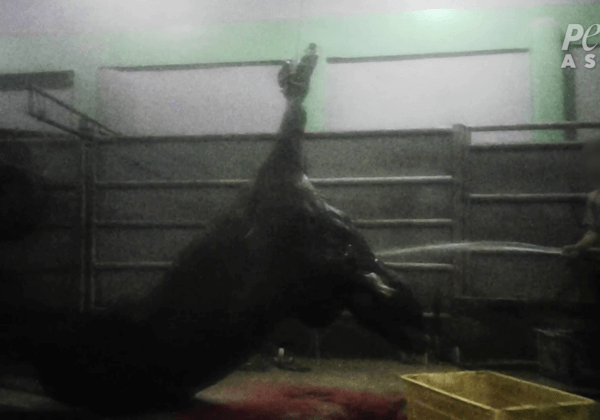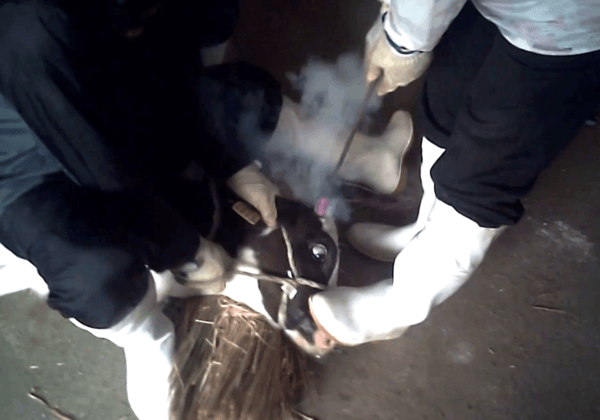PETA Asia’s 2019 Company of the Year Is Taking Down the Meat Industry
PETA Asia’s company of the year is… Green Monday!
The creative and compassionate company earned this year’s award for saving millions of pigs’ lives with OmniPork (also known as OmniMeat), a vegan pork made from pea protein, non-GMO soy, shiitake mushrooms, and rice, created by its food-tech venture Right Treat.

We love Green Monday because not only does it know that eating pigs and other animals is cruel, harmful, and completely unnecessary, the company is inspiring people to choose vegan options—which is the best thing that everyone can do for animals and the environment.
OmniPork taking Asia by storm.
Not only is OmniPork offered widely across thousands of restaurants and stores in Hong Kong, Mainland China, Macau, Singapore, Taiwan, and Thailand, Cathay Pacific airline now offers the meatless pork on its in-flight business class menu, and Omnipork will even see itself on Taco Bell’s menu in Mainland China soon. The cruelty-free meat will also be coming to Japan, the U.K., and several places in 2020.
View this post on Instagram
In the meat industry, pigs are kept in filthy, crowded conditions, in which disease can spread like wildfire, and they’re typically denied access to fresh air, sunlight, and adequate space. Mother pigs are squeezed into narrow metal stalls barely larger than their bodies and kept almost constantly pregnant or nursing. Pigs’ tails are chopped off, their teeth are cut with pliers, and males are castrated—all without painkillers. At slaughterhouses, they’re hung upside down and bled to death, often while still conscious.
The outbreak of African swine fever has resulted in the culling of more than 100 million pigs across China, and countless more have been killed in other Asian countries, including Cambodia, Laos, Mongolia, Myanmar, the Philippines, South Korea, and Vietnam.
But thanks to companies like Green Monday, going vegan has never been easier. Each person who goes vegan saves the lives of nearly 200 animals every year and significantly reduces his or her own carbon footprint, as animal agriculture is a leading cause of climate change.








